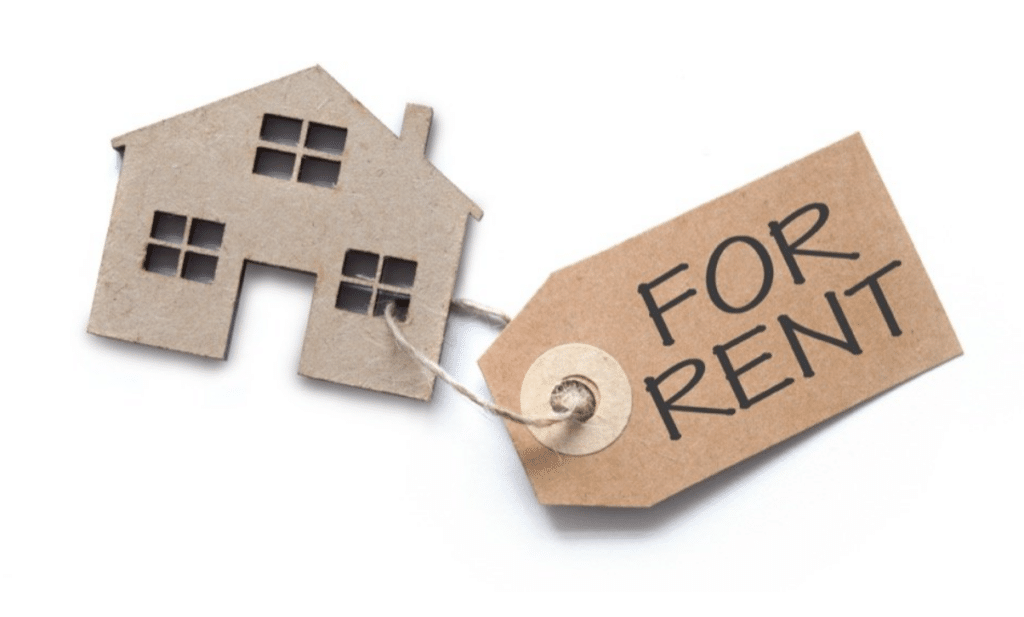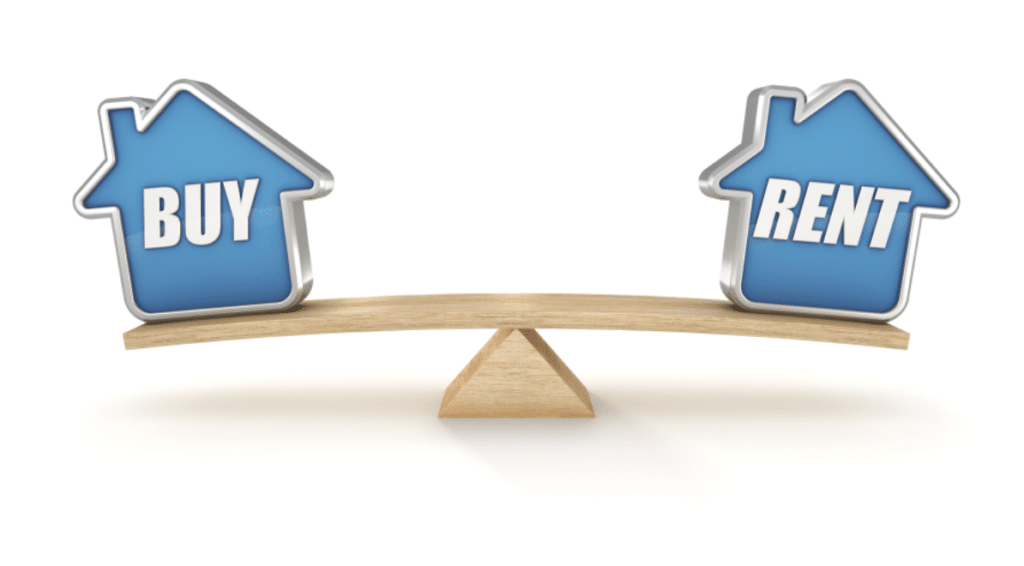When acquiring properties, you have the choice to either rent or buy. But in the UK, it’s complicated if you consider getting these properties in the cities or rural areas. Most cities in the UK offer a vibrant and convenient urban lifestyle, while rural areas provide a more serene countryside experience.

So, deciding whether to rent or buy properties in UK cities requires careful consideration. In this analysis, we will delve into each one of the choices. This will help you decide which option is better for you, particularly if it concerns the UK’s cities. Let’s start.
Key Takeaways:
- Renting generally has lower upfront costs compared to buying, making it an easier initial financial commitment.
- Homeownership allows for equity building and potential capital appreciation, providing long-term financial benefits.
- Market dynamics and property prices vary significantly across different UK cities.
Comparison of Upfront Costs for Renting and Buying

Acquiring a property is not hard; you only need to know the upfront costs. For instance, renting requires tenants to provide a security deposit. This serves as a security against any property damage during the tenancy. The security deposit is usually equivalent to one to two months’ rent. This is refundable at the end of the tenancy, barring any deductions for repairs.
Also, tenants may incur agency fees. This covers the costs of the tenancy agreement, referencing, and administration. These fees can vary depending on the letting agency or landlord and are usually non-refundable. In the UK, most agents charge an average of 10% of the rental income.
Lastly, tenants are responsible for the initial rent payment. This is usually the first month’s rent before moving into the property.
For buyers, buying a property involves several upfront costs, starting with the mortgage deposit. This deposit is a percentage of the property’s purchase price and is paid upfront by the buyer. The deposit amount can vary but typically ranges from 5% to 20% of the property’s value. A larger deposit often yields more favorable mortgage terms and lower monthly payments.
Also, buyers must consider the stamp duty land tax (SDLT). This is a tax payable on purchasing properties above a certain threshold. The amount of stamp duty varies based on the property’s price and whether the buyer is a first-time buyer or an existing homeowner. Additionally, buyers need to cover legal fees, which involve the services of a solicitor or conveyancer. This is usually around £800 and £1,500 in the UK.
Lastly, buyers may also choose to have a survey conducted on the property to identify any potential issues or defects. The survey cost can vary depending on the type and extent required. However, you can be safer between £500 and £1,300.
These upfront costs vary depending on the specific property, location, and individual circumstances. So, let’s compare the monthly cost.
Comparison of Monthly Costs for Renting and Buying
Considering the monthly costs for renting and buying require distinct differences. In the case of renting, you must pay a fixed price to the landlord or property management company. The rental agreement determines the amount and can be subject to annual rent increases as specified in the contract or regulated by local laws.
Also, renters should consider the potential for rent increases over time—high-demand areas especially, like London. Moreover, the rental market may experience inflationary pressures. According to a Statista report, there’s been an increase in rent payments from 2008 to December 2022.
In addition, people recommend tenant insurance to protect personal belongings against theft, damage, or other covered perils. Although it’s not mandatory, the cost of tenant insurance can vary depending on the coverage limits and insurance provider.
On the other hand, buying a property involves monthly mortgage repayments. This includes the principal amount borrowed and the interest the lender charges. The specific amount depends on the mortgage term, interest rate, and borrowed amount. Generally, it is usually up to 2% yearly in the UK.
Also, property owners are responsible for paying property taxes. This varies based on the location and the assessed value of the property. These taxes contribute to local services and infrastructure.
Moreover, as a homeowner, you are responsible for maintaining the property. This includes costs for repairs, regular upkeep, and potential renovations. The amount spent on maintenance can vary depending on the property’s age, condition, and unforeseen issues.
Advising homeowners to have home insurance to protect against damage, theft, or liability is crucial. Home insurance costs depend on the property’s value, location, and coverage options.
It’s worth noting that monthly costs can fluctuate based on factors such as changes in interest rates, property taxes, or insurance premiums.
Comparison of Long-term Financial Benefits for Renting and Buying

In the UK, homeownership offers long-term financial benefits for equity building and capital appreciation. As homeowners make mortgage payments over time, they gradually build equity in their property. Equity represents the portion of the property that the homeowner truly owns and can access through selling or refinancing.
This equity will be a valuable asset you can leverage for future financial needs, such as funding education, retirement, or other investments. Likewise, homeowners may benefit from potential capital appreciation, where the value of their property increases over time. This will give homeowners a significant long-term financial advantage in areas with solid housing market performance.
On the other hand, renters can invest the money saved from not having to cover the upfront costs and ongoing expenses associated with homeownership. By renting, individuals can allocate their funds towards alternative investments, such as stocks, bonds, or other assets.
This flexibility allows renters to diversify their investment portfolio and earn returns from a wider range of investment opportunities. Plus, renters are not exposed to the risks associated with fluctuations in the housing market. Similarly, they are not responsible for property maintenance and repairs, providing them more financial freedom and potential liquidity.
Property Market Trends In The UK
According to a report by Reuters, housing prices in the UK have reached 5.5% over the last twelve months. Locations like York and Swansea recorded the highest price inflation. Also, East and West Midlands, including Wellingborough, Kettering, Derby, and Birmingham, saw house price inflation.
However, you’d expect London to account for the inflation. While it remains the city with the highest house price, it increased slower. No other place in the UK surpasses the £518,900 average house price in London.
Let’s examine the regional cost variation of buying and renting houses in the UK, across major cities. The metrics for consideration include population, Average monthly rent, and average monthly rent.
| Top Cities | Population | Monthly Renting Cost | Cost of Buying |
| London | 9,527,497 | £1,978 | £518,900 |
| Manchester | 2,767,652 | £978 | £216,900 |
| Nottingham | 799,296 | £902 | £198,000 |
| Southampton | 943,061 | £1,035 | £261,500 |
| Bristol | 700,178 | £1,298 | £400,520 |
| Edinburgh | 547,413 | £1,133 | £264,300 |
| Birmingham | 2,643,652 | £849 | £203,400 |
| Leeds | 1,913,474 | £916 | £206,300 |
| Glasgow | 1,688,061 | £844 | £140,500 |
| Liverpool | 911,296 | £758 | £153,100 |
The data above – pulled from Zoopla, Rent London Flat, Population Stat, and Hometrack – shows the population size, the average monthly cost of renting, and the average cost of buying properties in selected UK cities. These figures make it easier to understand the financial considerations involved in the renting vs. buying decision in different locations.
Buying a property in cities like London has a higher upfront cost. The average property prices are significantly higher compared to other cities. Renting, on the other hand, offers more flexibility and a lower initial financial commitment.
However, cases like long-term costs or return or investment require careful consideration. This approach would help you decide whether to rent or buy properties in London.
The average property prices in Manchester are relatively more affordable than London’s. This makes buying a property a more feasible option for individuals or families looking to settle down in the long term. However, renting can still be attractive for those seeking flexibility and not wanting to commit to a mortgage.
While the case studies highlight variations in property prices and rental costs across different UK cities, each city has unique housing market dynamics. But then, what are the driving factors? The following paragraph will give better insights as we dig deeper.
Factors Influencing Regional Variation in UK Cities
Several factors contribute to regional variation in UK cities. This influences their unique characteristics and economic dynamics. Here are some key factors that influence regional variation:
- Local Property Markets: Each city in the UK has its unique property market influenced by factors such as supply and demand dynamics, population growth, and local amenities. Housing stock availability, development projects, and neighbourhood desirability significantly impact property prices and market trends in specific areas.
- Economic Conditions: Factors such as job growth, income levels, and economic stability or volatility influence demand for housing. Cities with strong economies, a robust job market, and higher income levels tend to attract more buyers and experience greater property demand.
- Infrastructure and Amenities: Proximity to transportation networks, educational institutions, healthcare facilities, recreational areas, and cultural attractions can influence the desirability of specific areas within a city. Regions with better infrastructure and a higher concentration of amenities usually see increased demand and higher property prices.
- Government Policies: Government policies, on a national and local level, can impact regional property markets. Policies related to housing development, planning regulations, taxation, and incentives for homeownership or rental properties can influence market dynamics.
- Demographic Factors: Demographic trends, like population growth, migration patterns, and changing household compositions, can contribute to regional variation in property markets.
Understanding these factors is crucial for individuals interested in regional property markets in the UK.
Pros and Cons of Renting

Renting offers several advantages. Firstly, it provides flexibility and mobility. This allows individuals to easily relocate or adapt to changing circumstances without the commitment of owning a home. Renting also entails lower initial costs since tenants typically only need to pay a security deposit and the first month’s rent. Additionally, renting relieves renters of the responsibility for maintenance and repairs.
However, there are also disadvantages to renting. One major drawback is the lack of equity building. Rent payments do not contribute to building ownership of the property. This means renters miss out on the potential for property appreciation and the opportunity to accumulate wealth over time. Renters also have limited control over the property, as they must abide by the landlord’s rules and restrictions.
Also, rental increases can occur, subjecting renters to rising housing costs. In addition, there is a certain level of instability as lease terms may change or are not renewed, making long-term stability uncertain.
Pros and Cons of Buying

Buying a property has several advantages, making it an appealing choice for many individuals. Firstly, homeownership allows for building equity and is a long-term investment. Homeowners gradually increase their ownership stake in the property by making mortgage payments. This provides a valuable asset to leverage for future financial needs.
Also, homeowners can make modifications and improvements to properties. This allows them a sense of stability and control over their living space. Homeownership also fosters a sense of belonging and community. Homeowners can establish roots in a neighbourhood and develop stronger connections with neighbours and local institutions.
However, there are certain disadvantages to consider when buying a property. One significant drawback is the higher upfront costs involved. These include the down payment, closing costs, and other associated fees. These are substantial and require careful financial planning.
Ongoing expenses, such as mortgage repayments, property taxes, insurance, and maintenance costs, also add to the financial responsibilities of homeownership. Market and financial risks are another consideration. Property values can fluctuate, and homeowners are exposed to potential market downturns or unexpected expenses.
Verdict: To Rent or to Buy?

Deciding between renting and buying in UK cities requires a careful assessment of your financial situation, lifestyle, and future plans. The flexibility, lower upfront costs, and adaptability of renting may suit those prioritising mobility, while buying offers the potential for equity-building and stability, aligning with the aspirations of those envisaging long-term homeownership. Given the complexity of this choice, engaging with professionals like mortgage brokers, financial advisors, or real estate experts can offer personalised insights to assist in making an informed decision that aligns with your fiscal circumstances and goals.
